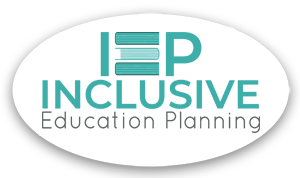A number of years ago I became aware of the power of language when I attempted to recruit mothers of children with disabilities for my doctoral research project. It quickly became evident that the word ‘disability’ was contentious. A number of mothers contacted me to join my project and when I asked them whether their child had a disability they became confused and unsure with what the word ‘disability’ meant and whether in fact their child had a disability. I found a better entry point was to ask whether the child was receiving ‘special education’ or had an ‘individual learning plan’ in the school setting. This question allowed mothers to provide a response of ‘yes’ or ‘no’, unlike the question of whether someone fitted the label of ‘disability’, a definition that is ever shifting and changing.
The question I asked myself was why wasn’t it clear for these mothers whether their child had a disability? The word ‘disability’ is context dependent meaning the definition changes in different places and times. A person can be defined as having a disability in one context such as school, but not in another such as the workplace, medical setting or for Centrelink purposes. In my role as a special educator I’ve taught children labelled as having a disability when they are young, however when they transition to another setting such as high school, they no longer qualify for special education services. Their ‘disability’ is suddenly erased- or perhaps it didn’t exist in the first place. I’ve taught children with moderate intellectual disabilities who qualify for special educational services but their parents have told me that their child doesn’t qualify for Centrelink benefits. Diagnostic criteria is ever-changing, adding to the confusion. When the Diagnostic Statistical Manual (the classification and diagnostic tool for ‘mental disorders’) was updated in 2013, the diagnosis of Asperger syndrome was subsumed under the broader umbrella term of autism spectrum disorders. People wanted a term to replace the void and possibly to distance this group from the suggestion of intellectual disability. Soon the term ‘high functioning autism’, or ‘HFA’ for those who like acronyms, came into common usage and is synonymous with Asperger syndrome.
There are those who find the word ‘disability’ offensive. The prefix of ‘dis’ negates the word ‘ability’, suggesting that the person has ‘no ability’. Disability advocates believe that focusing on personal inadequacies and functional limitations ignores the role of oppression, society and the environment in creating restrictions. This has led to the proliferation of euphemisms such as ‘diverse needs’. However there are those who find the term ‘needs’ patronising and prefer ‘special rights’, drawing on legal discourse from the civil rights movement. The word ‘special’ is also under attack with some contesting the usage of this term and the connection to oppression and segregation. The education system tends to utilise people first language where the person is named first and the condition second, for example ‘child with autism’. Critics of this approach reject this as separating the person from the trait and implying that the disability is inherently bad. Then there is the angst of choosing between ‘people with disabilities’, ‘people with disability’ or ‘people with a disability’. Guidelines and rule- books are remarkably inconsistent in this area.
So how do educators navigate the murky waters of political correctness? I believe the best response is to draw on the language that your school or education system has provided (this is usually people first language) whilst being sensitive to the fact that some may prefer a different response. People can be informed that the school determines the language you draw on, but if they find this problematic then you are willing to listen to their personal preference, take this on board and utilise this in one to one interactions. This message can be provided in a variety of ways such as on the school website, parent/ teacher nights or through a newsletter to families. However whether we should agonise over our choice of language is a whole other debate. Stella Young, a disability advocate, summed it up beautifully.
‘Putting an end to calling each other ‘retards’ and ‘spastics’ and generally using disability as a shortcut for something we hate is one thing. Quibbling over whether we say people with disability or disabled people is quite another’




